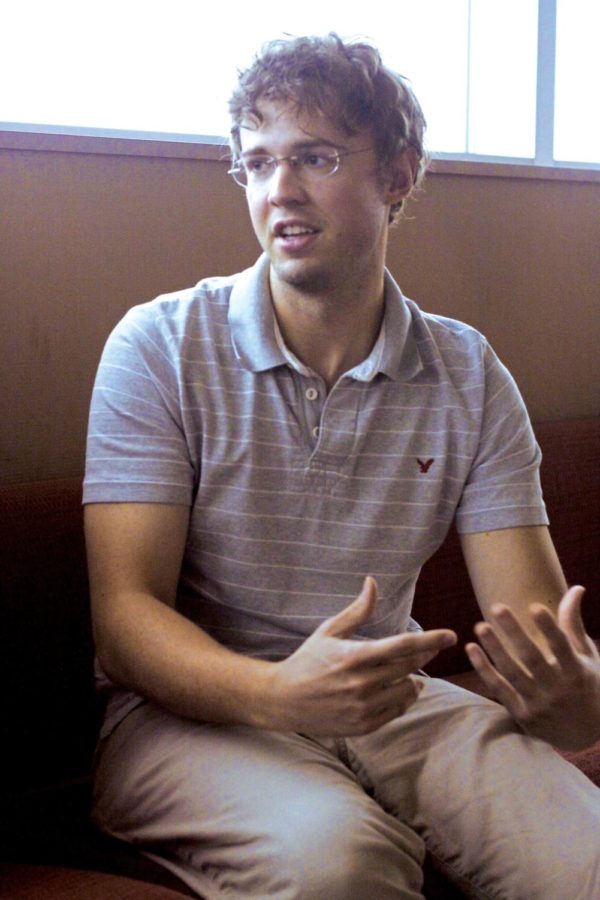Iowa State graduate student to attend Nobel laureate meeting
Photo: Bertha Bush/Iowa State Daily
Scott Boyken, graduate in bioinformatics, speaks about preparing for the Nobel laureate meeting he will be attending in Germany. He said he was “just trying to read a lot, especially about all the Nobel laureates that are going to be there and plan who I’d like to talk to.”
June 22, 2011
An Iowa State graduate student has been chosen to attend an annual meeting of Nobel laureates in Lindau, Germany on Sunday.
Scott Boyken, graduate student in bioinformatics, is one of 570 promising young researchers who have been invited to the conference to “exchange ideas, discuss projects and build international networks,” according to the Nobel website.
Boyken described bioinformatics as “an application of computational science to biology.”
The Lindau conference focuses on different fields of research each year. This year, it is dedicated to physiology and medicine. Twenty-four Nobel Prize recipients from around the world will be present.
“Each of the Nobel laureates that is there will give a talk on their career, and then there’ll be lots of little breakout sessions and opportunities to talk to them and really just generate discussion and talk about the future of science,” Boyken said. “It’ll definitely help with getting a job.”
Boyken’s advisors, Professors Robert Jernigan and Amy Andreotti, nominated him for the trip. Several Iowa State students before Boyken have attended the meeting.
“There’s approximately 400 or so applicants [in the United States], and of those they chose around 80,” Boyken said. “Of those, about 75 got selected to go to Germany.”
Boyken came to Iowa State about five years ago after completing his undergraduate work at Luther College in Decorah.His doctoral dissertation work at Iowa State focuses heavily on a substance called ITK.
“[ITK is] an enzyme that’s essential for T-cell, or immune cell, signaling,” Boyken said. “Without it, you don’t have a proper immune response.”
A breakthrough in Boyken’s research came when he discovered a new way to produce large amounts of the ITK protein, making it easier to study.
“To study [proteins] outside the cell we need larger amounts of them. A lot of mammalian proteins are not very happy when you do that,” Boyken said. “I was able to re-engineer the part of the protein I work on in a way that doesn’t change it too much, so we can still study it, but it changes it enough so it’s much happier outside the cell.”
The field of bioinformatics gained worldwide attention when the Human Genome Project was completed in 2003 under Dr. Francis Collins. However, “solving the genome was just the first step,” Boyken said.
“The most pressing issue in bioinformatics is figuring out to do with all this data,” Boyken said. “We’ve got 20,000 genes, approximately … It’s really about how they interact. You can’t get that just by looking at the data.”
Boyken has one year left at Iowa State. After he finishes his post-doctoral work, he hopes to teach bioinformatics and head a research facility.
Boyken has co-authored three research papers, including one in Nature, one of the most prestigious scientific journals in the world. He is currently trying to publish a “first author” paper, which would go a long way toward helping him graduate.
“A lot of science is very frustrating … most of the experiments you do just naturally fail,” Boyken said. “But when you do have a breakthrough, or something does work, it’s just one of the coolest feelings.”
Boyken hopes to gain “lots of new ideas, new connections and new friends” at Lindau. He will return to America after the conference ends July 1.







